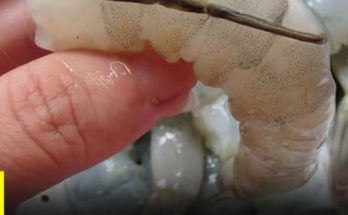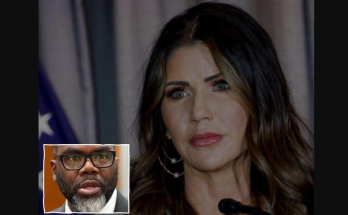For billionaire Daniel Whitmore, success had always come easy. From boardrooms to business deals, everything he touched turned to gold. But behind the glass walls of his Manhattan penthouse, his greatest challenge wasn’t a merger or an investment — it was fatherhood.
His twin sons, Ethan and Lucas, were born with a rare neurological condition that left their legs unresponsive. Doctors told him plainly, “They may never walk, Mr. Whitmore.”
Those words became an unshakable echo in his mind — a sentence that no amount of money or power could overturn.
Daniel was a man accustomed to solutions. He hired the best doctors, built home therapy rooms, and funded research studies in hopes of finding a cure. But every effort led to the same heartbreaking result: silence.
Ethan and Lucas smiled less each day. They rarely spoke, their laughter a faint memory. And after his wife’s tragic passing, Daniel’s home — once full of light — became a shell of what it once was.
In his grief, he turned to what he knew best: work.
Days became meetings, nights turned to endless travel. When he was home, the walls echoed with quiet — the kind that reminded him how little his fortune could buy.
Over two years, nineteen nannies came and went. Some left in tears, others in frustration. Each arrived with impressive credentials and left with a heavy heart. The Whitmore twins were kind but detached — unreachable, some said.
Then came Grace Miller.
It was a gray November morning when Grace entered the Whitmore penthouse for her interview. She was in her late twenties, dressed simply — jeans, a navy coat, and a calmness that didn’t waver even in the towering presence of Daniel Whitmore.
She wasn’t what he expected. His staff had prepared him for another professional with a stack of certificates and a practiced smile. Grace carried only a small folder and an air of quiet certainty.
Her first question wasn’t about therapy schedules or medications.
“What makes Ethan happy?” she asked.
“And what does Lucas love most?”
Daniel hesitated. In all the medical consultations, progress reports, and care plans, no one had asked that before.
He cleared his throat.
“Ethan loves airplanes,” he said quietly. “He dreams of being a pilot.”
“And Lucas,” he continued, “loves music. It’s the only thing that calms him.”
Grace nodded with a soft smile. “Then that’s where we’ll begin.”
It was the simplest exchange — yet, for Daniel, it felt like the first breath of hope in years.
Grace began her work the next day. She didn’t unpack medical equipment or charts. Instead, she arrived with a small keyboard, colorful scarves, and a playlist of classical and jazz music.
Daniel, watching from his office monitor, was bewildered.
What could music and fabric possibly do that the finest specialists hadn’t?
But as the melodies filled the room, something extraordinary happened.
Ethan, who had spent years avoiding eye contact, started to smile.
Lucas, who rarely spoke, hummed softly along with the tune.
Grace encouraged them gently, her voice steady and warm.
“Move with the rhythm,” she whispered. “Each sound is an adventure. Each motion tells a story.”
The twins lifted their hands, clapping unevenly to the beat. Ethan’s laughter — a sound Daniel hadn’t heard in years — filled the air.
For the first time, their therapy didn’t look like work. It looked like childhood.
Over the next few weeks, Grace transformed the Whitmore home.
She replaced sterile routines with laughter-filled games and replaced silence with music. Meals became “exploration missions.” Exercises turned into playful challenges.
Daniel found himself drawn to the sound of his children’s joy. Each giggle and shout pulled him away from the screens that once defined his life.
Yet, beneath his growing admiration for Grace’s methods, there lingered doubt. Could faith and creativity truly heal what medicine could not?
He decided to test it for himself.
One evening, Daniel returned home early. He followed the sound of laughter to the kitchen — and froze at the sight before him.
Grace stood beside the counter, hands gently supporting his sons. Ethan and Lucas were upright, their small feet pressed to the floor, standing — trembling but determined.
“Papa, look!” Ethan cried out, his voice bright with pride.
“We’re standing!”
Daniel’s world stopped. For four years, he’d been told this moment would never happen. But there it was — living proof that something miraculous was unfolding right before his eyes.
Grace looked up, smiling through tears.
“They just needed someone to believe they could.”
The next morning, Daniel called Dr. Anderson, the neurologist who had overseen the twins’ case since birth.
“They stood last night,” Daniel said, his voice trembling. “I saw it myself.”
There was a long pause. Then the doctor replied, careful and restrained:
“Mr. Whitmore, brief standing doesn’t mean recovery. Be cautious. Don’t give them false hope.”
But Daniel couldn’t shake the image of Ethan’s grin or Lucas’s determination. They hadn’t imagined it. It was real.
Still, the warning haunted him. What if he was being fooled? What if Grace’s methods were just temporary tricks that would only lead to heartbreak?
To test her, Daniel invited Dr. Anderson to observe one of Grace’s sessions. Without warning her, he watched as the boys began their exercises.
At first, it went well — until they noticed the doctor watching. Lucas froze. Ethan lost focus. Their balance wavered.
Dr. Anderson took notes quietly, then turned to Daniel.
“She’s imaginative,” he said. “But this isn’t science. Be careful.”
Grace sensed Daniel’s disappointment and later confronted him in the kitchen.
“They’re not experiments, Daniel,” she said firmly. “They’re your children. And for the first time in years, they believe they can do more than anyone’s told them.”
Her voice cracked with emotion.
“You’re so afraid of losing hope that you don’t realize — it’s already here.”
Her words hit harder than she knew.
The argument faded, but the memory stayed. Days passed, filled with small steps and quiet victories. Then came the afternoon that would change everything.
Daniel was reviewing reports when he heard his sons shouting from the other room.
“Papa, hurry!” Ethan called.
He ran down the hallway — and what he saw stopped him cold.
Lucas was standing without support, hands lightly touching the table. His knees shook, his face glowing with determination.
“Papa,” he said breathlessly, “I’m walking.”
He took one step. Then another. And then another.
Grace knelt before him, tears streaming down her cheeks. Ethan clapped wildly. Daniel fell to his knees, covering his mouth in disbelief.
Years of despair vanished in a single instant. His son — the boy who was never supposed to walk — had just done the impossible.
Grace looked up, voice trembling.
“He chose to believe in himself. That’s the real healing.”
Months passed, and the Whitmore home was filled with laughter once again. Ethan and Lucas began walking short distances with little help. They played music, chased each other, and filled every corner with joy.
Grace continued her creative lessons — turning therapy into storytelling, movement into imagination. Every milestone was celebrated, no matter how small.
Daniel, once a man driven by results and data, began to understand something deeper: the heart heals before the body follows.
Nine months after Grace’s arrival, Ethan was standing tall beside his father, and Lucas could walk across the living room unaided. The once-quiet penthouse was now alive with energy, love, and faith.
In time, Grace became more than a nanny. She became part of the Whitmore family.
Her compassion, strength, and unshakable faith brought warmth back into Daniel’s world — and eventually, into his heart.
Three years later, the twins walked proudly as ring bearers at Daniel and Grace’s wedding, held in the same garden where they had once practiced their first steps.
“Does forever mean you’ll stay?” Ethan asked that night.
Grace smiled, wrapping her arms around both boys.
“Forever,” she whispered. “Because family isn’t about who you hire — it’s about who you believe in.”
A decade later, the Whitmore family’s story became one of the most inspiring tales of modern recovery.
-
Ethan Whitmore trained as a pilot, pursuing the dream he once could only imagine.
-
Lucas Whitmore received a scholarship to a world-renowned music conservatory.
-
Dr. Grace Miller Whitmore, now Daniel’s wife, founded a pioneering child recovery center that helps children worldwide rediscover hope through creativity and compassion.
And Daniel? He found his greatest wealth not in his empire — but in the laughter that echoed through his home each morning.
“Miracles,” he once said, “aren’t purchased. They’re believed in.”
Today, visitors to the Whitmore family home see framed photos of two boys running across a sunlit lawn — living proof that faith, love, and perseverance can change even the bleakest destiny.
If you had been in Daniel Whitmore’s place — hearing doctors say “it’s impossible” — would you have dared to believe otherwise?
Sometimes, the most extraordinary transformations begin with something simple: the courage to believe that healing can happen.




